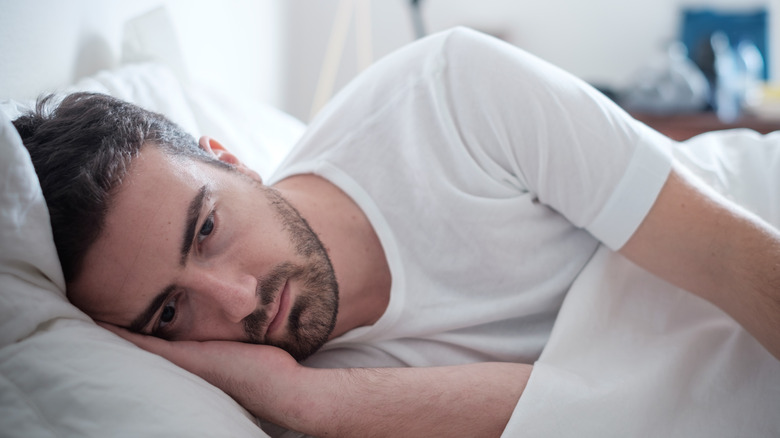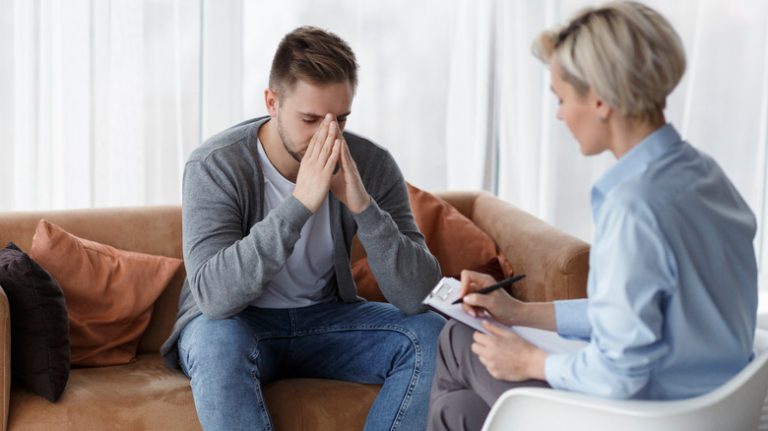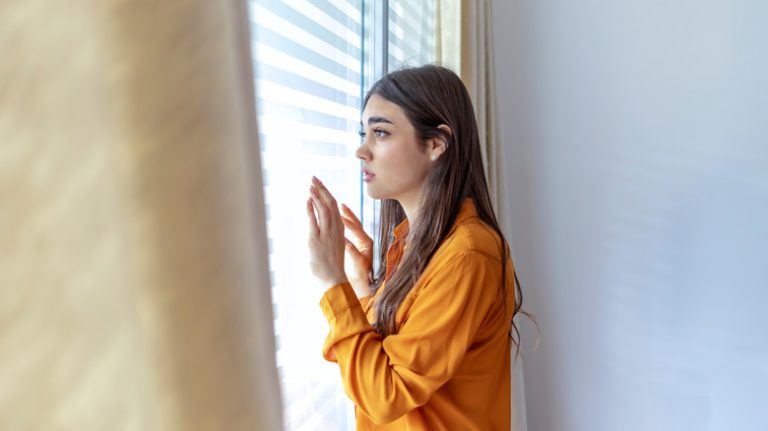Anxiety messes with every aspect of your life. Whether it’s chronic or it comes out of nowhere only to vanish again, an anxiety spike will derail whatever you had planned. Of course some plans can be picked up again. Others, like a hot night with a special someone, aren’t so easy to get back on track, especially since the anxiety spike — or a chronic anxiety condition — might make it hard to get in the mood in the first place.
Anyone with anxiety will tell you that the most common symptoms aren’t exactly sexy. Sweaty spots break out, your body temperature goes out of whack, and an overwhelming sense of dread makes you want to hide. Nothing about anxiety inspires passion or even a basic interest in anything other than getting your fears under control. As Dr. Jamie Goldstein put it when speaking to Bustle, “When we are in an active state of anxiety, our body shuts off to anything it doesn’t immediately need.”
Dr. Goldstein is a psychotherapist currently working for the health app Coa as their therapy experience lead. He has seen first hand what mental health can do to a person’s libido. But his words aren’t based on patient testimony alone. A 1983 study published in the Journal of Clinical Endocrinology and Metabolism found that increased cortisol resulted in a suppressed circulation of testosterone. The study itself is old as far as scientific research goes, but it has yet to be debunked and is still referenced by medical professionals today. And that’s not the only affect anxiety – or its medication – can have on a person’s libido.
Medication may help or hinder
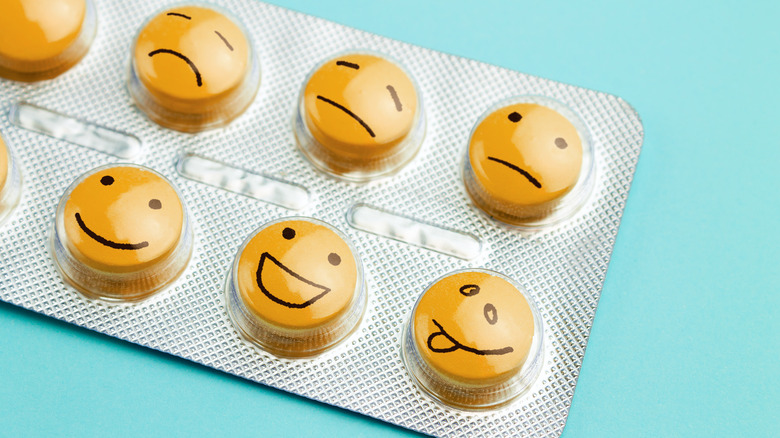
Many people assume that anti-anxiety medication would be the easiest solution to the chemical imbalances caused by anxiety. In some cases, however, medication can cause just as many problems, if not more. Most anti-anxiety medications and antidepressants are part of a group known as SSRIs, or selective serotonin reuptake inhibitors. Mayo Clinic states that SSRIs work by increasing the amount of serotonin in the brain. They do this by preventing neurons in the brain from absorbing serotonin. Since serotonin is the chemical that helps neurons in our brains to communicate, more unabsorbed serotonin left free means better communication between neurons.
This increased communication is generally a good thing. But preventing neurons from absorbing as much serotonin as usual can come with some nasty side effects. Some of them, as Harvard Health Publishing explains, can lead to issues in the bedroom. SSRIs can cause an overall reduction of sexual interest, meaning a generally lower libido. While that can be frustrating enough on its own, anti-anxiety medications are also known to make it hard for people of all genders to sustain arousal and reach orgasm once they do become aroused.
This doesn’t mean that you should skip on your anti-anxiety medication — not without a doctor’s help, at least. In some situations your doctor may suggest reducing your dose or changing the scheduling to help address issues with libido. But those are not changes you want to make without expert assistance, especially when your medication may not be the root of the issue.
It isn’t just hormones
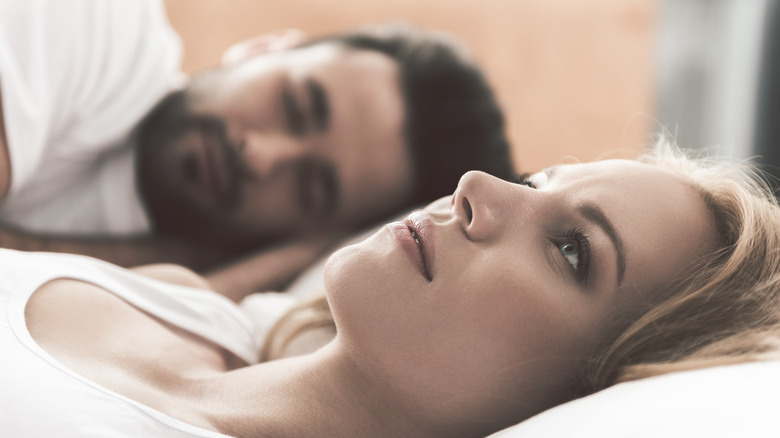
Plenty of people have heard that sex is more “cerebral” for men than women, meaning it starts in the brain well before a woman ends up in bed with someone. Most women would agree that it’s true — and plenty of men feel the same way. So it makes sense that anxiety can put the brakes on anything remotely sexy in a way that has nothing to do with testosterone.
On the physical end of things, anxiety can cause physical reactions like those mentioned above. Nobody really wants to do the deed while their stomach is churning and their heart is racing (over something that isn’t related to pleasure). But there is another physical reaction that, although uncommon, can take anxious sex from uncomfortable to painful. As Cosmo explained in 2024, anxiety can cause vaginismus. When this happens, the muscles of the pelvic floor tighten involuntarily, and trying to have sex results in high levels of discomfort or even pain (according to the Cleveland Clinic).
There’s also the issue of performance anxiety — and yes, it can affect everyone. Many men believe that their female partners are reaching orgasm at least most of the times that they are intimate. But a Kinsey Institute study performed in 2024 found that, on average, only 31 to 40 percent of women orgasmed when having sex with a heterosexual partner. The pressure to reach orgasm — or at least pretend to — forces women to stop focusing on their own pleasure by worrying about their partner’s, dropping their arousal even further.

